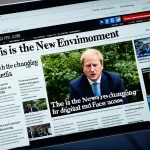Key Factors Shaping the UK’s Political Landscape
Understanding the UK political landscape requires examining the current political conditions and influences that define it. At the heart are the major parties—Conservative, Labour, Liberal Democrats—and their leadership, which has undergone significant changes recently. These shifts impact party strategies and public confidence. Expert political analysis highlights that domestic issues like economic recovery and social welfare dominate discussions, while international factors such as Brexit repercussions and global geopolitical tensions also weigh heavily on policymaking and voter sentiment.
The current political conditions reflect a blend of public demands and strategic party positioning, with voters increasingly attentive to how parties address inflation, healthcare, and national security. Expert political analysis points out that regional differences within the UK add complexity, influencing how parties tailor their messages. Furthermore, media coverage and opinion polls play a critical role by shaping public perception and framing political debates. In summary, a multifaceted mix of leadership, policy priorities, and global context is shaping the UK’s political terrain today.
Also to discover : How is the UK transportation sector innovating?
Forecasts and Predictions for Upcoming UK Elections
The UK elections forecast remains complex amid evolving current political conditions. Electoral predictions rely heavily on recent opinion polls, which show fluctuating public sentiment influenced by economic concerns and Brexit aftermath. Expert political analysis highlights that voter turnout could shift, especially among younger demographics, affecting overall results.
National and local elections both face uncertainty, with party strategies adapting to address key voter priorities like healthcare, inflation, and security. The Conservative and Labour parties, still dominant, adjust messaging to regain or maintain support. Meanwhile, smaller parties may influence outcomes via coalition possibilities.
In the same genre : What are the future prospects for UK agriculture in a changing climate?
Opinion polls serve as crucial tools in political forecast, providing snapshots but not certainties. For example, swings in public opinion following leadership announcements or policy proposals often skew predictions. Understanding these dynamics is essential for grasping election outcomes in the UK political landscape.
In summary, expert political analysis warns that while polls guide expectations, actual results will depend on campaign effectiveness and voter engagement under the current political conditions. This dynamic interplay shapes what upcoming UK elections may bring.
Emerging Trends and Shifts in Party Dynamics
The UK party trends reveal significant evolution driven by leadership changes and shifting voter priorities. Recent replacements in major party leadership have altered party dynamics, prompting strategic realignments. For instance, new leaders often reshape policy emphasis, seeking to reconnect with disillusioned voters. Expert political analysis shows that these leadership shifts may invigorate or destabilize party bases, impacting electoral appeal.
Smaller parties and new political movements are gaining traction, responding to gaps left by traditional parties. This rise influences the broader UK political landscape by introducing fresh ideas and potential coalition opportunities. Realigned alliances or splits further diversify the political spectrum, complicating prediction models and voter decisions.
Understanding this dynamic environment requires recognizing how leadership transitions and emerging groups reshape political narratives. These shifts have tangible effects on campaigning methods and voter turnout, as parties adapt to evolving expectations in current political conditions. In summary, monitoring party dynamics is crucial for anyone seeking insight into the future direction of UK politics.
Policy Directions and Government Actions
The UK policy trends anticipated post-election focus sharply on economic recovery and social welfare improvements, responding directly to voter concerns highlighted in recent current political conditions. Government strategies plan to address inflation control and healthcare system resilience, while future legislation may include reforms targeting housing affordability and climate commitments.
International events, such as ongoing Brexit consequences and geopolitical shifts, also heavily influence these government strategies. For example, adjustments in trade agreements and foreign relations will inform policy priorities. Expert political analysis emphasizes that the government must balance domestic needs with international obligations to maintain stability and growth.
Economic strategies under discussion prioritize investment in technology and infrastructure to stimulate job creation and competitiveness. Concurrently, social policies aim to reduce inequality and improve public services—areas critical to voter satisfaction and party credibility. These dual focuses mirror the complex demands placed on policymakers amid evolving global pressures and UK political landscape expectations.
In navigating this environment, the government’s ability to implement coherent, responsive policies will significantly shape future legislation and the broader political climate. Understanding these policy directions is essential for anticipating how the UK will address both immediate challenges and longer-term goals.
Key Factors Shaping the UK’s Political Landscape
The UK political landscape currently faces a complex interplay of internal and external forces. Recent leadership changes in major parties have significantly shifted strategies and messaging, affecting voter perceptions and confidence. Expert political analysis identifies that domestic issues such as economic recovery, inflation control, and healthcare demand urgent attention, while lingering Brexit effects continue to influence trade and diplomatic relations.
Regional variations remain influential, with parties tailoring campaigns to address diverse local priorities, a factor strongly emphasized in expert political analysis of current political conditions. Additionally, media portrayal and public discourse shape political narratives, often amplifying specific concerns or achievements. International developments, including geopolitical tensions, further complicate the setting by pressuring policy adjustments, reflecting the interconnectedness of national politics with global trends.
In assessing the UK political landscape, expert political analysis underscores that leadership direction and evolving voter expectations are critical. Parties’ abilities to respond effectively to economic and social challenges, while navigating international uncertainties, will define political stability and prospects in the near future. This multifaceted environment demands close attention to domestic sentiment and global influences shaping policy and electoral behavior.








